Recently, Tearfund Nigeria office, its partners in Nigeria, the Technical Advisory Group (TAG), faith leaders, gender champions and other participants drawn from the Plateau State Ministry of Health, Plateau State Primary Health Care Board, Plateau Peace Agency, community leaders and beneficiaries of the Masculinities Faith and Peace (MFP) project from Jos South, Jos North, Bassa and Shendam LGAs, converged on Novel Suites and Resort, Rayfield, Jos, at an occasion tagged ‘Dissemination event of the Masculinities, Faith and Peace (MFP) project.’ The event, organized by Tearfund and two of its implementing partners (Faith Alive Foundation (FAF) and The ECWA AIDS Ministry) in collaboration with the Institute of Reproductive Health, Georgetown University, Washington DC, was aimed at bringing to light the transformation the MFP project has brought about through reducing intimate partner violence, increased healthy timing and spacing of pregnancies and social cohesion writes Ralph Madugu
Presenting a brief about the MFP project, Mr. Ezekiel Bala, who is the Coordinator of the ECWA AIDS Ministry, disclosed that it is a 3-year project funded by the John Templeton Foundation and awarded by Tearfund and partners through the Institute of Reproductive Health to assess the impact and effectiveness of Tearfund’s Transforming Masculinities intervention.
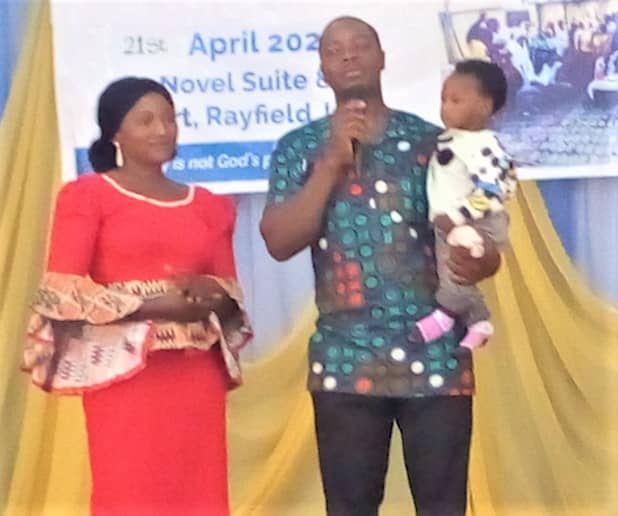
He explained that the goal of the MFP was to see a reduction in sexual and gender based violence, increase in the healthy timing and spacing of pregnancies as well as improve inter-religious relationships by addressing social norms that shape inequitable gender relations thereby preventing the use of modern methods of child spacing in mixed Christian and Muslim communities in Plateau State.
He added that that the project was carried out in one church and one mosque in each of the five implementation communities.
Said he: “It works with Christian and Muslim congregations to foster greater gender equality, positive masculinities, improved maternal health among young couples, and improved community relationships.
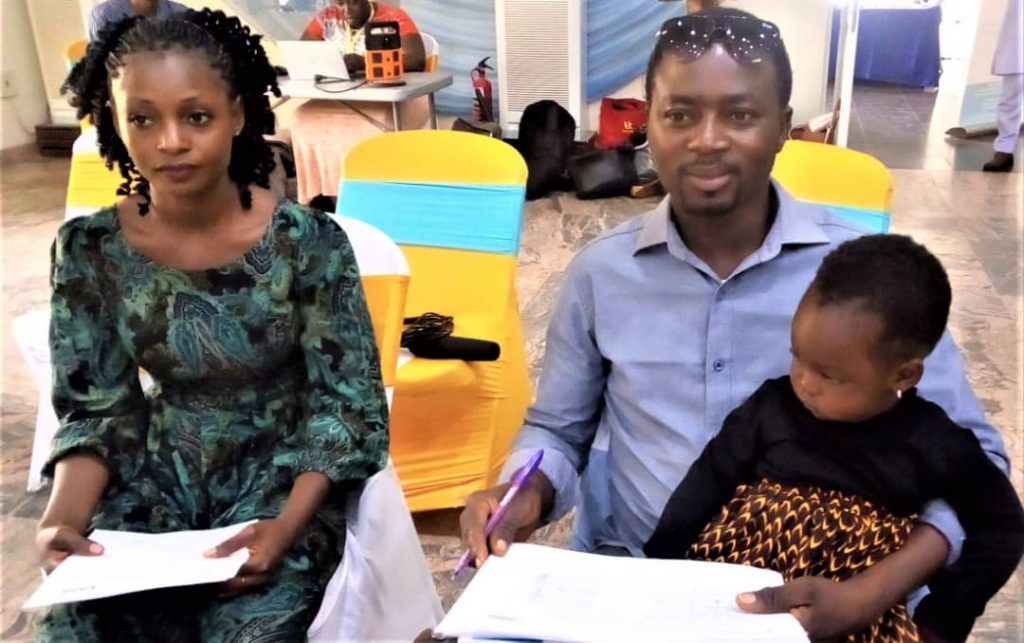
“MFP is a research-led project implemented by Georgetown University’s Institute for Reproductive Health and Tearfund in partnership with two local partner organizations, Faith Alive Foundation (FAF) and The CEWA Aids Ministry (TEAM).”
Mr. Bala also stated that the MFP intervention was designed to engage congregational leaders, young couples and their wider Christian and Muslim congregations. He added that the project lasted for one year in the selected experimental congregations and comparison was then made with the control congregations to assess its progress and impact.
“The intervention works with different groups. The approach is either through workshops or structured small-group discussions called community dialogues. It draws on scriptural reflections on gender equality, sexual and gender based violence, positive masculinities, child spacing and inter-religious relationships,” he stated.
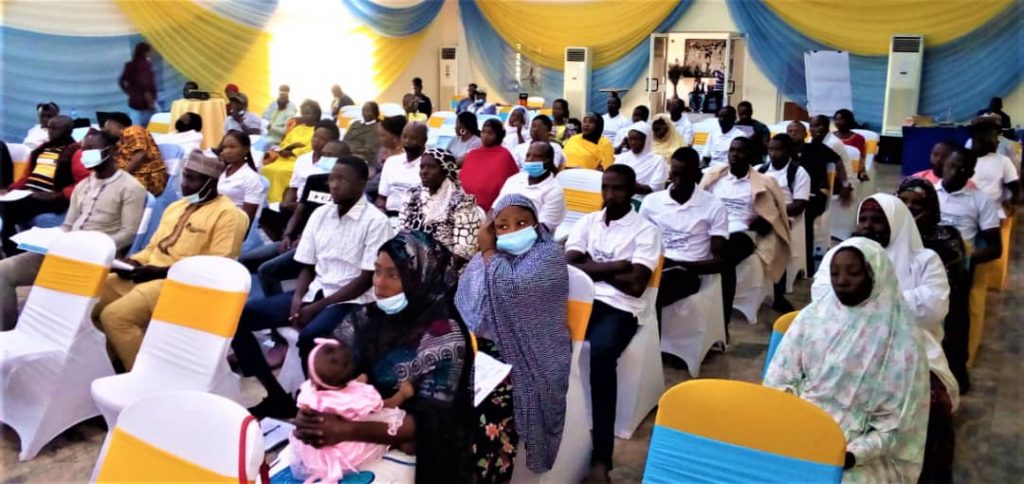
In his presentation on progress in implementation, MFP Project Manager, Mr. Andrew Saman, said MFP Theory of Change and research questions as to what extent MFP promotes shift in normative environments and behaviors relating to increase use of modern methods of child spacing, reduce experience /perpetration of intimate partner violence, increase male engagement in childcare and household work as well as improve social cohesion and interfaith dialogue were administered and analyzed in the course of implementation.
On the aspect of child spacing, the findings showed improved attitudes, self-efficacy, wife’s involvement in decision-making, and perceptions of access to modern child spacing methods. Other finding includes improved perceptions of faith community approval and use of modern child spacing methods as typical behavior specifically for first-time parents and an improvement in reported use of a modern method of child spacing from 44.6 per cent baseline to 59.5 per cent end line.
In the area of intimate partner violence, Mr. Saman pointed out that key findings revealed an improvement in attitudes towards intimate partner violence as well as improved perceptions of faith community disapproval of IPV and a large reduction in emotional IPV and violence against a wife to discourage use of Family Planning use and reductions in physical and sexual intimate partner violence.
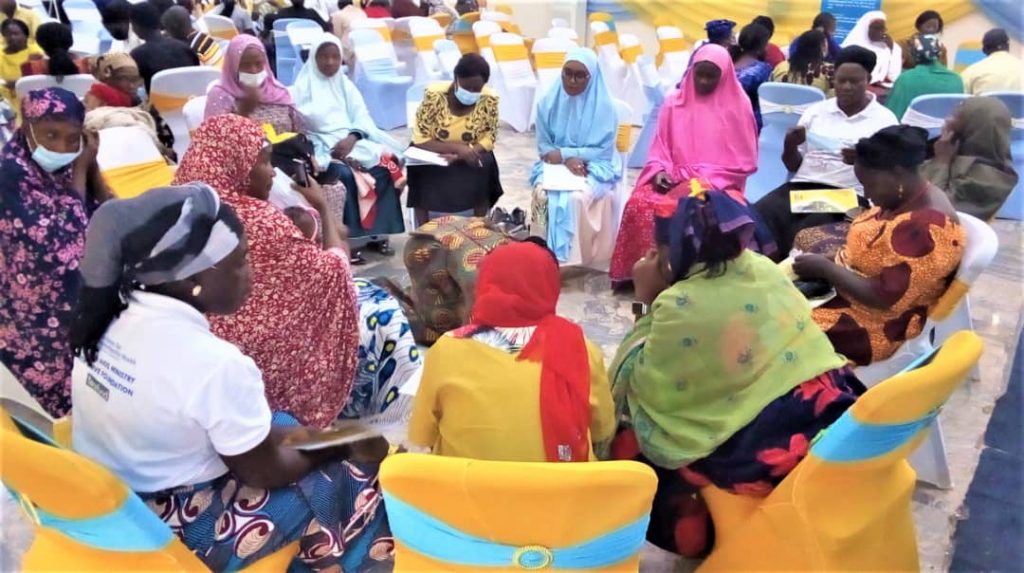
On positive masculinities and gender roles, the MFP listed improvement in attitudes toward gender equity and male participation in childcare and household work, improved perceptions of faith community approval and of male participation in household work as typical behavior, improved reported male participation in household work a some of the positive outcomes.
On social cohesion and interfaith dialogue, he enumerated improved perceptions of trust and conflict between religions, improved perceptions of faith leaders working together across faiths to solve community problems as some of the findings.
Mr. Bryan of the Institute for Reproductive Health, Georgetown University, presented an extensive evaluation of the 3-year MFP project.
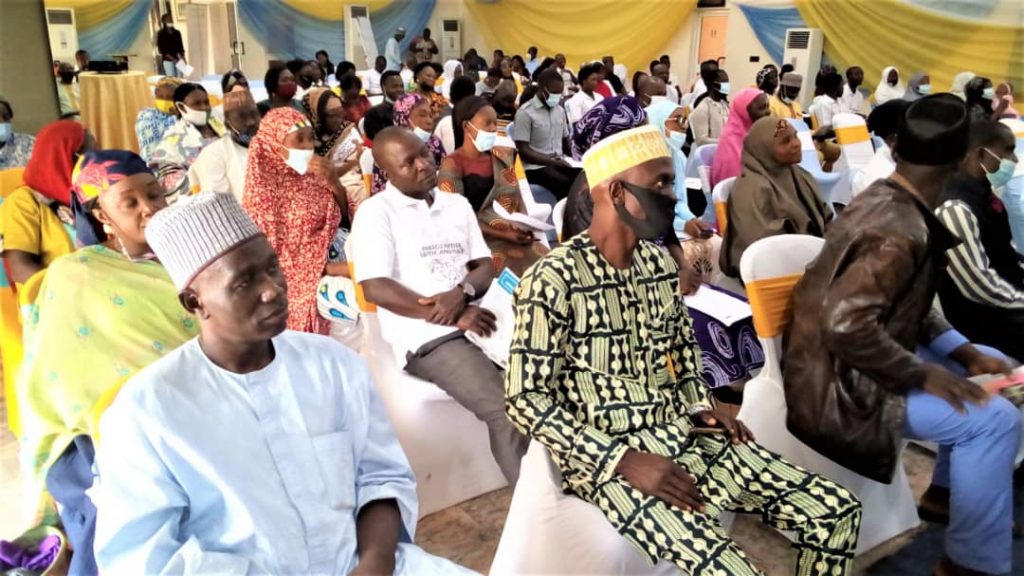
During the event some couples who participated the project gave testimonies of how the MFP positively impacted their lives.
The event featured cultural dances, interactive sessions and breakout sessions where participants dissolved into smaller groups, brainstormed and made group presentations regarding various aspects of the MFP project. At the end of the sessions, participants advocated for sustainability, more funding and wider spread of the MFP to other local government areas considering the remarkable progress and the positive transformational impact it has made in the lives of benefitting communities.
Goodwill messages came from the leadership of the Plateau State chapter of Christian Association of Nigeria, Jama’atul Nasrul Islam, State Ministry of Health as well as the Plateau Peace Building Agency.
